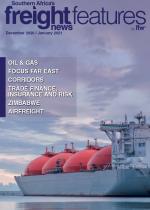The complexities of the economic impact of the Covid-19 pandemic on individual countries and bilateral trade pairs has created differences in trade finance trends and timing. Indicators suggest trade finance volumes have been dropping as the world grapples with the effects of the pandemic, trying its best to move goods and trade with each other. Amidst much of this chaos one thing stands out – if there is any way of keeping trade f lowing it will require increased trade finance volumes, not less. According to the International Finance Corporation (IFC), the reduction in trade finance has not been as large as originally expected in many places around the world, and already there are signs of a fragile recovery. “We expect the trade finance gap to expand, potentially as the pandemic continues, and certainly once Covid-19 abates and businesses need additional trade finance to emerge from lockdowns,” reads the IFC’s latest outlook report. “Historic patterns suggest that the supply of trade finance will not recover as fast as demand. This may be exacerbated if new regulatory challenges emerge as Covid-19 subsides. We expect the trade finance gap to continue to expand in the medium and long terms.”The IFC maintains that while demand has weakened temporarily, trade finance will be critical to help restart production and trade when the globe emerges from this pandemic.At present, however, the supply of trade finance remains under pressure, according to the report. “When actual, potential, or perceived financial risk increases sharply in countries on either side of a trade border, trade finance is particularly vulnerable, given its short-tenor, lower-yield, cross-border nature, its dependence on a vibrant correspondent banking network, and its denomination in US dollars. ”The reality is that trillions of dollars will be needed to support the return of trade. According to the IFC, based on an initial 13 to 32% decrease in trade forecast by the World Trade Organization ( W TO), t he International Chamber of Commerce (ICC) has warned that two to five trillion dollars of trade credit market capacity will be needed to create the potential for a V-shaped recovery and restore trade volumes to 2019 levels. “Just as trade is a critical component of economic recovery, trade finance is a critical component of trade, perhaps even more so going forward, as future risk perceptions are expected to incorporate Covid-19’s effects on economies and financial stability. While the fundamentals of trade finance may evolve over time and new players may enter the space, trade fundamentally relies on a deep and complex network of cross-border finance, unique to this asset class and economic activity. ”Building on both historic experience and emerging trends, the IFC expects that trade finance will see a temporary fall in demand followed by an increase, while the trade finance gap in emerging and developing markets will persist, if not expand over time. “Financial institutions will need to adapt as market dynamics shift post-crisis and will be pulled forward to address shifts in funding and risk sharing for trade. ”It also forecasts that digital innovations will be expedited while regulatory challenges will emerge following the Covid-19 crisis. The reduction in trade finance has not been as large as originally expected in many places around the world, and already there are signs of a fragile recovery.

